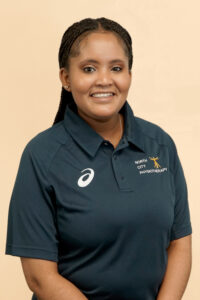
Concussion is quickly becoming one of the primary areas of focus in modern sport. This is particularly true here in New Zealand, where higher risk contact sports such as Rugby are so widely played. We are only now starting to recognise the long term effects of concussion; more and more retired athletes are being diagnosed with chronic traumatic encephalopathy (CTE), which until recently was a condition onlyA seen in retired boxers and other combat sport athletes.
While as a whole, sporting bodies are starting to take the dangers around concussion more seriously, and are putting in place previsions to better protect their players, some are still lagging behind. While Rugby Union has had rules directly relating to concussion and the management of concussed players for some time, and is putting significant time and effort into better managing concussions, other sports such as Football (Soccer) are frequently found wanting in regards to their attitudes and regulations regarding the injury.
We, as healthcare professionals, are by no means free of fault in this regard either. The severity, or even the presence of a concussion, is often underestimated, and too often, management of the injury amounts to nothing more than advising the patient to avoid contact sports for several weeks. There is a great deal of misinformation regarding concussions, in both the medical and patient populations. Many people strongly associate loss of consciousness with a diagnosis of concussion, when in actual fact, this occurs in only a small minority of cases, thought to be as few as 10%. Other well recognised symptoms, such as headaches, visual and balance disturbances, confusion and amnesia, are also not going to present in all cases, and are often a sign of a more severe concussion.
The frequency of concussion is also greatly underestimated. Recent studies looking at Rugby Union put the incidence rate, at an amateur/community level of play, at ~1 moderate to severe concussion per game, with the incident rate at professional level play being as high as 2.5 per game.
Undiagnosed or poorly managed concussion can have severe consequences for players. A concussed player will perform as a lower level, is at a significantly higher risk of sustaining other injuries, and recurrent concussions are potentially life threatening. If a player or patient is suspected to have sustained a concussion, the overarching message must be to err on the side of caution and sit out from play.
The International Rugby Board (IRB) are one of the few governing bodies in sport that bar any player diagnosed with a concussion from play for a minimum period of 3 weeks. This ruling is strongly supported by the NZRU, and applies to any level of play.
Given the highly variable nature of concussions, however, simply enforcing a period of rest is not sufficient to properly manage a patient’s concussion. The recent collaborative efforts of a large number of multisector and multidisciplinary groups in Scotland have produced a graduated return to play programme known as the Scottish Concussion Guideline.
The minimum rest period is set at 14 days for patient under age 18, and 7 days for patients over 18. The patient must also be symptom free for 24 (48 hours for patients under 18) at stages 2-5.
Referring patients who present to clinic with concussion through to a physiotherapist can be a good way to ensure that the patient is properly monitored while they progress through their rehabilitation.












